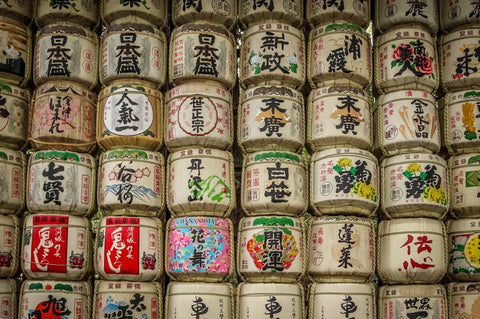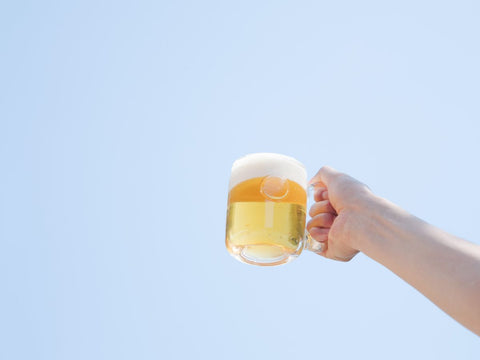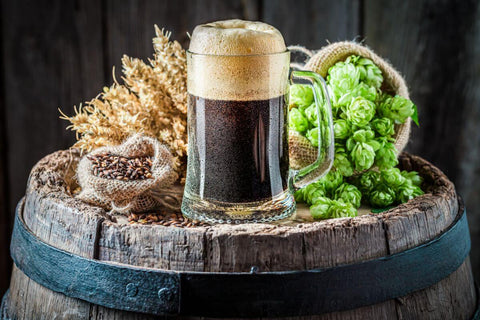What makes Japanese liquors unique?
- Most drinks are products of tradition and history.
- They love introducing different flavors to their liquors.
- They use botanicals and ingredients indigenous or common to Japan.
- Japanese gins have a more distinctive taste.
- The climate in Japan affects the making of Japanese whisky.
- Rice can substitute for other grains in the making of Japanese beer.
If there’s one thing to be said about different Asian liquors, it’s that they’re one-of-a-kind, both in their brewing process as well as their composition. Each country’s history and culture play a big role in how all its products are made, liquors and alcoholic beverages included.
In this article, we’ll take a look at a country where some of the best liquors in the world originate: Japan. Read on to know what makes Japanese liquors so unique.
Most Drinks are Products of Tradition and History

One of the best things about Japanese liquors—and many other products from Japan, for that matter—is that they infuse their culture and traditions into the production process. Japan has such a rich history and culture, and they’ve preserved it so well by passing it down along generations.
For example, look at the most iconic Japanese drink: sake. The process behind sake has been implemented and innovated since the 2nd or 3rd century. That’s a lot of time to perfect a drink!
For a taste of tradition, try the Gekkeikan Traditional Sake that results from over 370 years and 14 generations of sake brewing experience. It’s far from the oldest sake in the world, but it’s certainly one of the best thanks to its dry, mellow flavors and natural aromas.
They Love Introducing Different Flavors to Their Liquors
In contrast to their commitment to traditional methods and techniques, innovation is also part of Japan’s culture and characteristics. This can be seen in any of their liquor brewing processes, where unique or even unusual ingredients are incorporated into their drinks, simply for experimentation’s sake.
Consider their wide array of fruit liquors. The most popular is the plum liquor umeshu, but in actuality, almost every fruit Japan has to offer has been incorporated into a liquor at some point.
Another example is Japanese brandy, which can include ingredients like chocolate, black vinegar, and grapes to create a rich and pungent flavor. Even indigenous herbs have made their way into Japanese brandy as well.
They Use Botanicals and Ingredients Indigenous or Common to Japan

Speaking of indigenous herbs, it’s a common habit for Japanese breweries to use ingredients they can source right from within the country itself. Japan has a lush and fertile landscape that’s conducive to growing all sorts of fruits, grains, and other ingredients. So it’s the perfect place to get all that they need.
Japanese Gins Have a more Distinctive Taste
If you compare gin from Japan with those from other countries, you might get a little surprise. The ingredients that make Japanese gin are separately distilled before being blended, which allows them to retain their particular aromas and flavors even in the final product. It’s not unlike the process of making Japanese whisky, which involves carefully blending slightly different whiskies together into one.
The Climate in Japan Affects the Making of Japanese Whisky

And while we’re on the topic of whisky, the mixture of bases isn’t the only thing that makes it unique.
Japanese whisky comes in a variety of flavors and aromas, but generally, you can expect them to be lighter and more fragrant than Scotch. Typically, it also has lower alcohol content than most whiskies, giving it a mellow and complex flavor. Finally, it is also irresistibly smooth thanks to the climate in Japan, which is perfect for its production—the humidity and temperature levels are consistent throughout the year.
For a Japanese whisky that truly hits the spot, you can’t go wrong with the Mars Maltage Cosmo, which is best enjoyed straight or on the rocks. On the note, expect hints of different fruits; on the palate, the pronounced roundness of honey and currants; and on the finish, some grape and roasted almond.
Rice Can Substitute for Other Grains in the Making of Japanese Beer
Due to alcohol laws in Japan that dictate the taxation of beer according to how high its malt content is, traditional and craft beer breweries have found tricks and techniques to lower the malt content in their products.
One of these ways is to use rice instead of other grains, which not only lowers malt content but also provides a lighter, fresher flavor that matches well with Japanese cuisine. Sapporo’s premium beer, for example, is a refreshing lager with a crisp, refined flavor and a clean finish that makes it the perfect complement to sushi and ramen.
For more interesting facts about Japanese beer, check out our previous article on the topic!
Key Takeaway
We hope this article on what makes Japanese liquors unique has opened your eyes to the many unique quirks and characteristics of this iconic group of beverages. And if it’s made you crave a delicious and refreshing Japanese drink right about now, that’s even better!
No need to look anywhere else for your Japanese beer, whisky, or sake fix—at Ralph’s, we have them all. Check out our collection of sake in the Philippines, or filter our whisky or beer collection according to country, and send in your order right away. We offer same-day and next-day delivery within Metro Manila!



